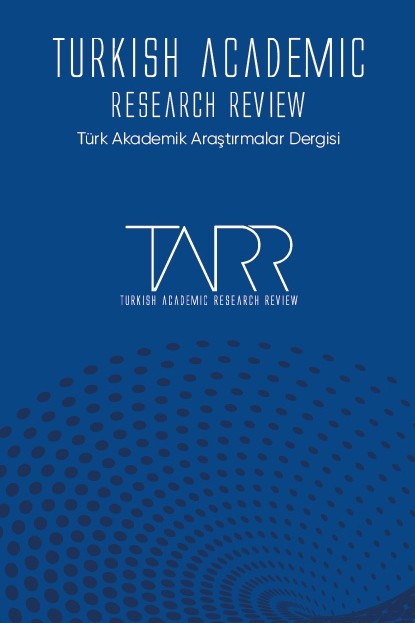Osmanlı Devleti’nin Güç Kaybetmeye Başladığı Dönemlerde Şark Meselesi
Milletlerin oluşum ve devamına kaynaklık eden kültürel değerler, örf ve adetler ile zihni yapılarıdır. Bu yapı tarihteki Doğu-Batı çatışmasının da daha iyi anlaşılmasının da anahtarı olup, bu anahtarın dişlileri Truva Savaşlarına kadar dayandırılmaktadır. Bir on dokuzuncu yüzyıl argümanı olan Şark Meselesi aslında bu tarihsellikle aynı ölçekte değerlendirilmesi gereken bir mevzudur. Bu mevzuda, Türk imgesi Avrupa Hunlarından itibaren baş aktör olmuş, İslam’ın Kabulü ve Osmanlı Devleti siyasi arenadaki büyük gücü ile tavan yapan bir oluşuma evrilmiştir. İlk kez 1815 Viyana Kongresi’nde dillendirilen Şark Meselesi kavramı, Avrupa Devletlerin kolonyalist yayılma ve ekonomik emperyalist politikaları için bulunmaz bir coğrafyayı yani Osmanlı coğrafyasını içinde barındırdığı azınlık grupları harekete geçirerek parçalamayı hedefleyen bir anlayış olarak literatüre girdi. Parçalanan Osmanlı coğrafyasında hegemonik güç olmayı hedefleyen Avrupalı devletlerin bağımsızlık hareketlerine verdikleri desteklerle azınlık gruplarını kışkırtmaları, bunun karşısında ise Osmanlı Devleti’nin hayatiyetine yönelik aldığı bir dizi tedbirlerle süreci durdurmaya çalışması ve tasfiye edilen Osmanlı toprakları ve halen devam eden Şark meselesi günümüzde de önemini koruyan bir meseledir. Bu çalışma konuya daha yakından ışık tutmaya gayret gösteren bir çalışma olup, kuşkusuz ki konuyla ilgili söylenen en son söz olmayacaktır. Ancak okura tarihten bir yaprağı aydınlatacak bir araştırma sunulmaya çalışılmıştır.
Anahtar Kelimeler:
Osmanlı Devleti, Güç, Şark Meselesi
Osmanlı Devleti’nin Güç Kaybetmeye Başladığı Dönemlerde Şark Meselesi
AbstractAmong the concept of nation, which we express with our current logic, and the factors affecting the formation of this concept, psycho-social reasons, success in creating the other, and strategies developed and maintained in line with this success play a major role. Identity, which Western society defines itself, is its success in creating the other. In this success, the European Hunsare in the historical background of the mental structure, which constitutes the east-westcontrast, and in the following periods, the Muslim Turkscome. According to many opinions, The Eastern Question, which is a nineteenth century argument, is not only an argument from that period, but it can be reduced to much older dates about it sorigin.As Europeans became stronger in the following periods, they aimed to transform the Ottoman geography, where they could keep alive and sustain their imperial policies, into region where they could maintain their hegemonic power. For the first time in the 1815 ViennaCongress, the disintegrate on process of the Ottoman Empire was brought to the agenda with in the scope of theEastern Question and with in the scope of this agenda, the minorities in the Ottoman Nation system were manipulated with the demands of independence and this supported the efforts that accelerated the disintegration of theOttomanState. The Ottoman Empire, on the other hand, tried to over come this chaotic situation, which was described as the “Longest Century of the Empire’’, with the least damage through a series of reformist policies, but could not prevent the losses of big land and the liquidationprocess of the state.There is a widespread belief that the issue is still continuing with different version sand that it has not been closed before the Europeans. In this study, an effort has been made to shed more light on the subject. The study will certainly not be the last word on the subject.
Keywords:
Ottoman State, Power, Oriental Issue,
___
- 1. Dikici, Mehmet; Uyum Yasaları, İstanbul, Çatı Kitapları, Ocak 2005.
- 2. Djuvara, T.G. & Şekip Emir; Türkiye’yi Parçalama Planları, Ankara, Türk Diyanet Vakfı Yay., VI. Baskı, 2004.
- 3. Eğribel, Ertan; “Anadolu Türklüğünün Yükselişi: Rönesansın Açmazı ve Atlantik Merkezli İlişkiler”, Sosyoloji Yıllığı İstanbul,,Kızıl Elma Yayınları.
- 4. Eğribel, Ertan; “Tarihte Doğu-Batı Çatışması” ,Sosyoloji Yıllığı, İstanbul, Kitap 12, Kızıl Elma Yay., 2005, Anadolu Savaş Yolları Kavşağı.
- 5. Karadağ, Raif; Şark Meselesi, İstanbul, Emre Yay., III. Baskı, 2005.
- 6. Raif Karadağ, Şark Meselesi, , İstanbul, Emre Yay., III. Baskı, 2005.
- 7. Said Edward, Oryantalizm, Çev: Nezih Uzel, İrfan Yayınları, İstanbul, 1998.
- 8. Sonyel, Salah; Minorities and The Destruction of the Otoman Empire.
- 9. Şan, Mustafa Kemal; “Tarihte Doğu-Batı Çatışması” ,Sosyoloji Yıllığı, İstanbul, Kitap 12, Kızıl Elma Yay., 2005,Tek Tanrılı Evrensel Dinlerin Doğuşu ve Doğu-Batı Çatışması.
- 10. Vilademiroviç Barthold, Vasili; Rusya ve Avrupa’da Oryantalizm, Tercüme: Kaya Bayraktar-Ayşe Meral, İstanbul, Küre Yay., I. Basım, 2004.
- 11. Yıldırım, Ergün; ”Tarihte Doğu-Batı Çatışması”, Sosyoloji Yıllığı, İstanbul, Kitap 12, Kızıl Elma Yay., , 2005
- Yayın Aralığı: Yılda 4 Sayı
- Başlangıç: 2016
- Yayıncı: Mehmet ŞAHİN
Sayıdaki Diğer Makaleler
Osmanlı Devleti’nin Güç Kaybetmeye Başladığı Dönemlerde Şark Meselesi
Hadisçilerin Rivayet Telakkisi ve İçeri̇k Tenkidi Meselesi
Velilik ve Keramet Bağlamında Abdal Musa’nın Gerçek ve Menkıbevi Hayatı-Şahsiyeti
Kültürlerarası İletişimsel Yetinin Yabancı Dil Öğrenimindeki Yeri
